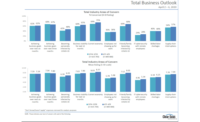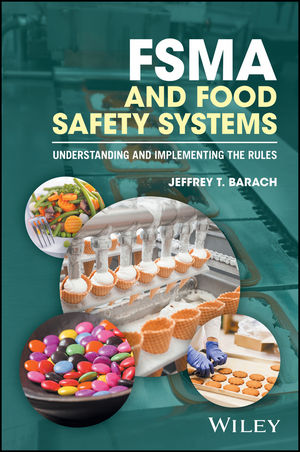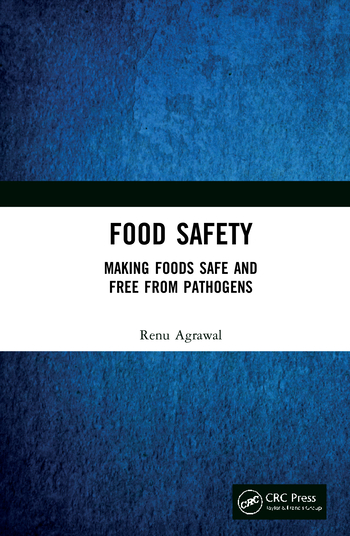Food Recalls from the Perspective of the Retailer

What are the responsibilities and suggested courses of action for the retailer who finds itself in possession of potentially adulterated food? Unfortunately, as a member in the chain of commerce, under many state’s laws, retailers will be held as equally liable as the manufacturer from whom the adulteration initiated. On January 20, 2015, The FSM eDigest published an article, advising manufacturers of their responsibilities arising in the event of the need to conduct a food recall and how to prepare ahead of time to respond quickly. But retailers sit much further down the chain and although their responsibilities are great, they rely on others upstream for the information needed to do their job.
In most instances, a retailer’s first notification of a problem will come from the manufacturer, distributor, the U.S. Food and Drug Administration (FDA), the U.S. Centers for Disease Control and Prevention (CDC) or equivalent state agencies. Such initial notice may only advise that ABC products from DEF manufacturer or distributor have been determined to be contaminated with GHI and there is reason to believe this product may have been found its way to you as a retailer. This notification may be provided to you even before an official recall—whether voluntary or mandatory—is publically issued. The public recall may have more detailed information but this initial notification triggers the time for you to begin initiation of your own recall plan.
Identification
For a retailer to begin steps to remove adulterated food from that portion of the stream of commerce that is within its control, there are certain necessary identifying pieces of information which must be obtained. This information will be also demanded by the FDA and CDC from the manufacturer and distributor at the same time and should be included in the official recall notice released to the public. Unfortunately, the governmental investigations are a work in process. Information is released quickly to protect public health. But more information may become known thereafter, requiring subsequent actions including subsequent or modified recalls:
• Names of manufacturers and distributors
• Description of product
• Brand or generic names
• Sizes(s) affected
• Lot or unit numbers
• Dates manufactured, date of expiration, use by date
• Distribution means, transportation entities and involved geographic areas
If this information, whether from an informal notification or from a formal notice of recall, provides you with notice that you may have adulterated product on your shelves, you must act immediately. If the information currently available to you leaves some ambiguity as to whether you are in receipt of products subject to the recall, contact your FDA District Recall Coordinator for further clarification. The contact information for your district can be found on the FDA website.
In addition to direct receipt of information from manufacturers, distributors or governmental entities, retailers should take a more proactive approach. The FDA, CDC, U.S. Department of Agriculture, and U.S. Department of Health and Human Services have coordinated to create a single go-to website with information about all recalls being handled and sometimes those being investigated by each agency. Regular monitoring of the site by retailers can give you a head start on problems that may be coming your way. The site also allows you to enroll to receive alerts and emails regarding food recalls.
Removal of Product
Once you have been put on notice that you may be in possession of or have previously been in possession of adulterated products, it is time to immediately take action to protect public health. First, search all of your facilities for the product including shelves, warehouses, trucks, refrigerators and any place where even small quantities of the product might exist. Isolate the identified products. The recall notice you receive should indicate how to either return the product or dispose of it. The notice should also include a small poster to hang from the shelf where the tainted product was removed.
Once you’ve taken steps to insure no new tainted products are sold, you must next take action to notify customers who may have already purchased the product. Again, the FDA District Recall Coordinator will be of assistance. Elements of a retailer’s notification process may include:
• Press releases
• Posters or flyers in the store
• Warnings on websites
• Tracking individual customer identification through credit card purchases, online purchases and frequent shopper cards
Scripts should be prepare to respond to consumers who call or come to customer service with questions. All floor personnel should be carefully motivated to refer all customer questions to management or customer service.
For those products with a limited shelf life, do not assume that simply because that expiration date has passed that the risk of contamination is gone. It is no surprise that consumers often consume food products after the expiration date. So if a product falls within the parameters of products identified as tainted, warnings and protective actions should continue for a period of time even after the expiration date.
Detailed records must be kept of each and every step you take as a retailer to deal with the product.
Costs
The cost of handling food recalls can include lost profit and labor costs. Customers may come to you demanding refunds. Being in the stream of commerce can put you in direct fire for later personal injury or even wrongful death litigation. Before the situation arises, review the indemnification provisions in your procurement contracts. Also, sit down with your insurance agent to review your coverage for both the recall and for any possible litigation.
Recalls have become a more and more frequent fact of life. And, as both governmental agencies and litigants look for more people to hold responsible, retailers are being held responsible on a more frequent basis. Being prepared with a plan of action will make the process run more smoothly—albeit no less stressful.
Kathy Hardee, Esq., is co-chair of the Food & Agriculture Industry Group at Polsinelli, PC, which is composed of a team of attorneys from every legal practice area and who each have a focused background in the food industry.
>
Looking for a reprint of this article?
From high-res PDFs to custom plaques, order your copy today!








